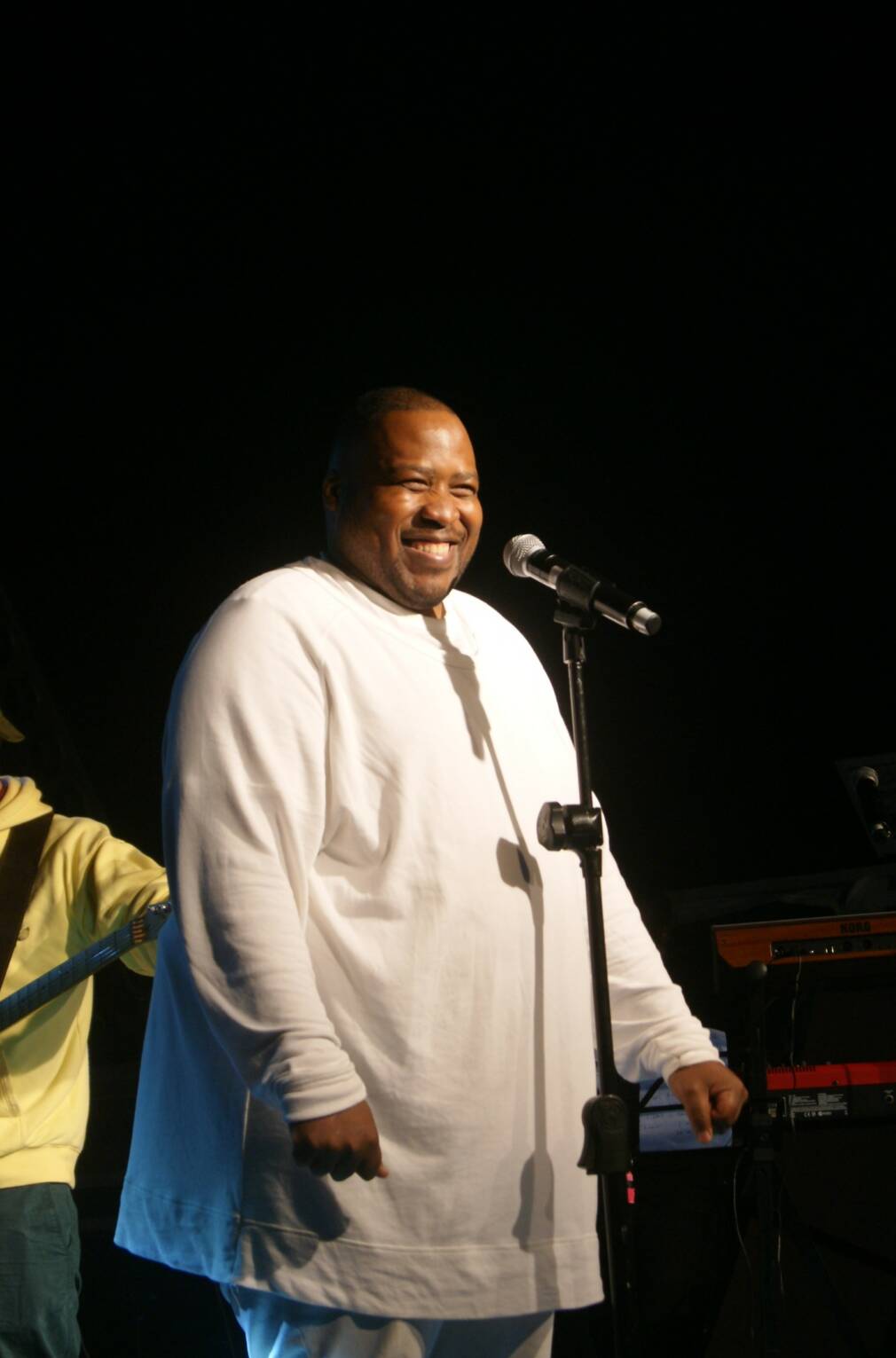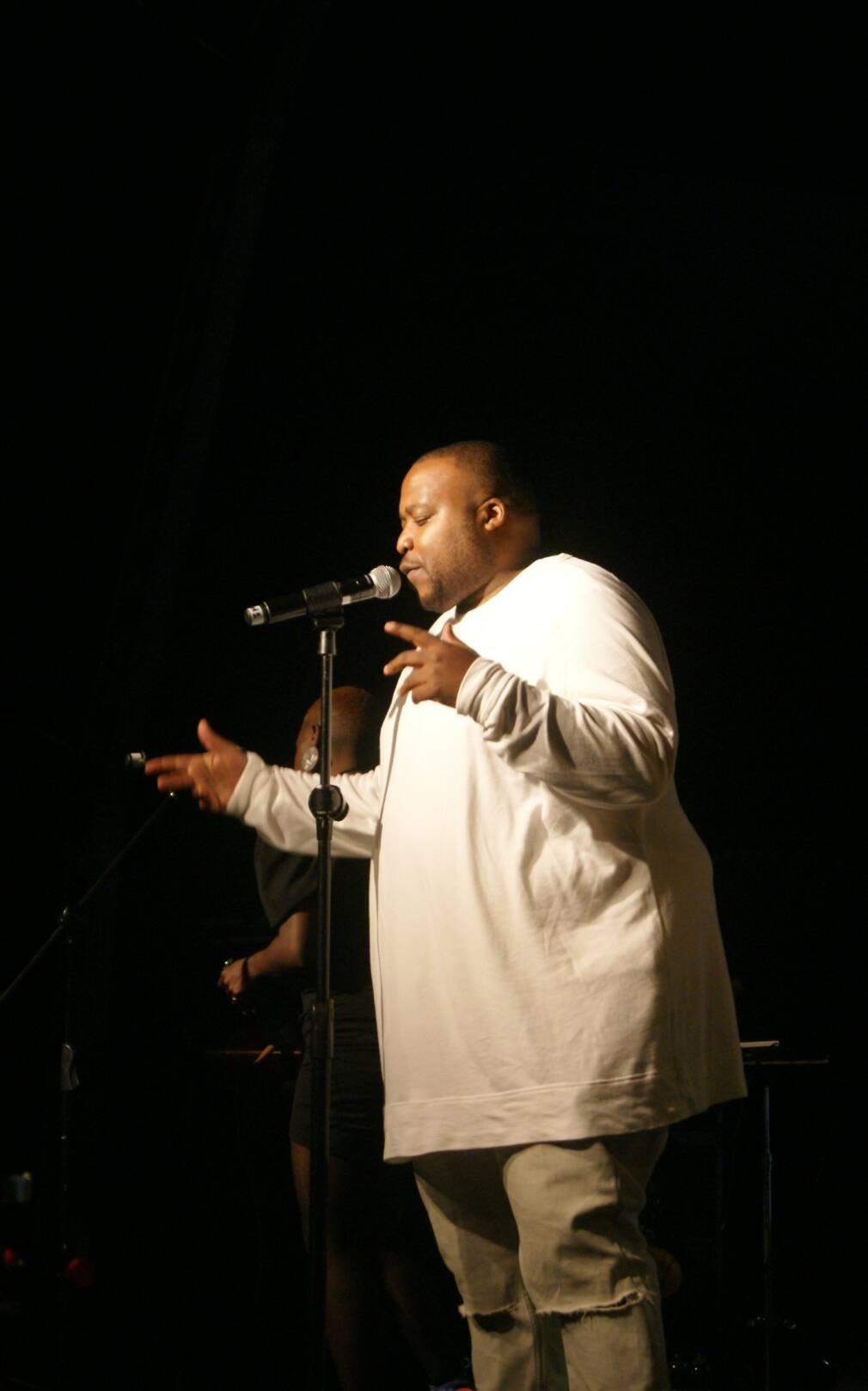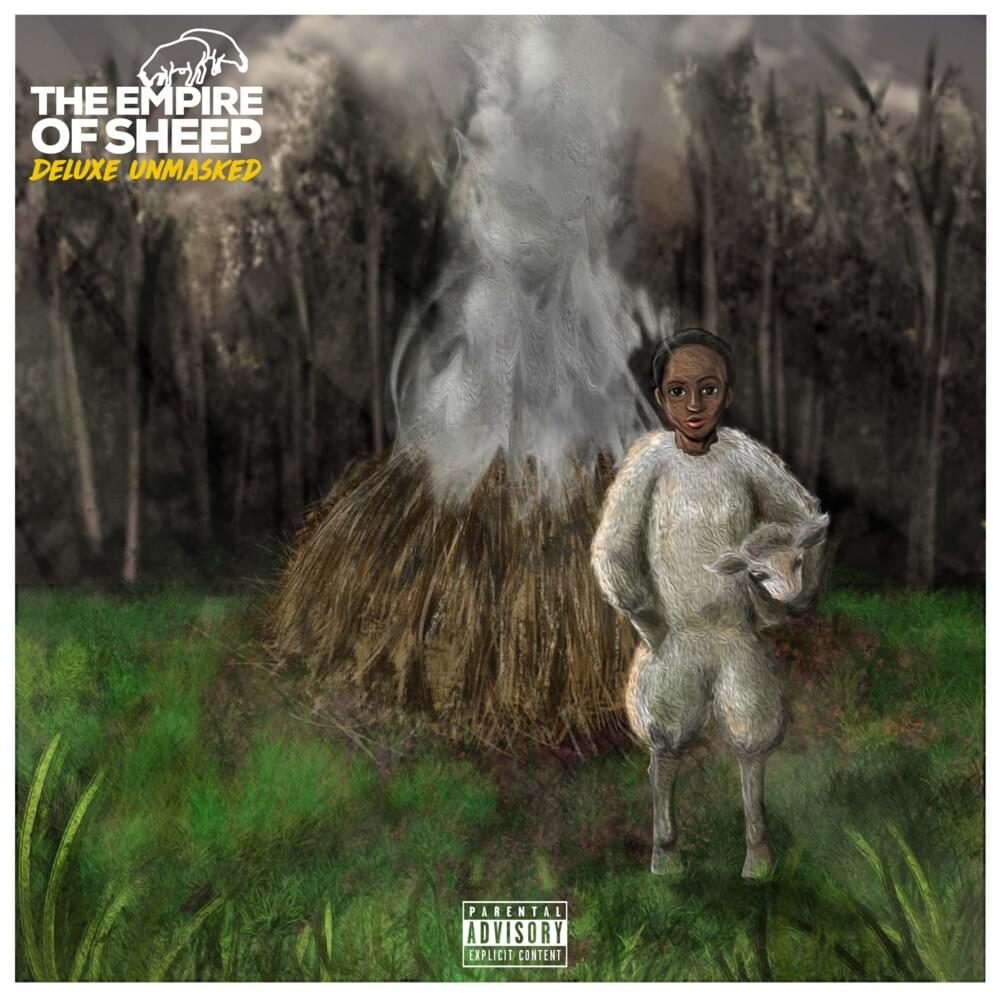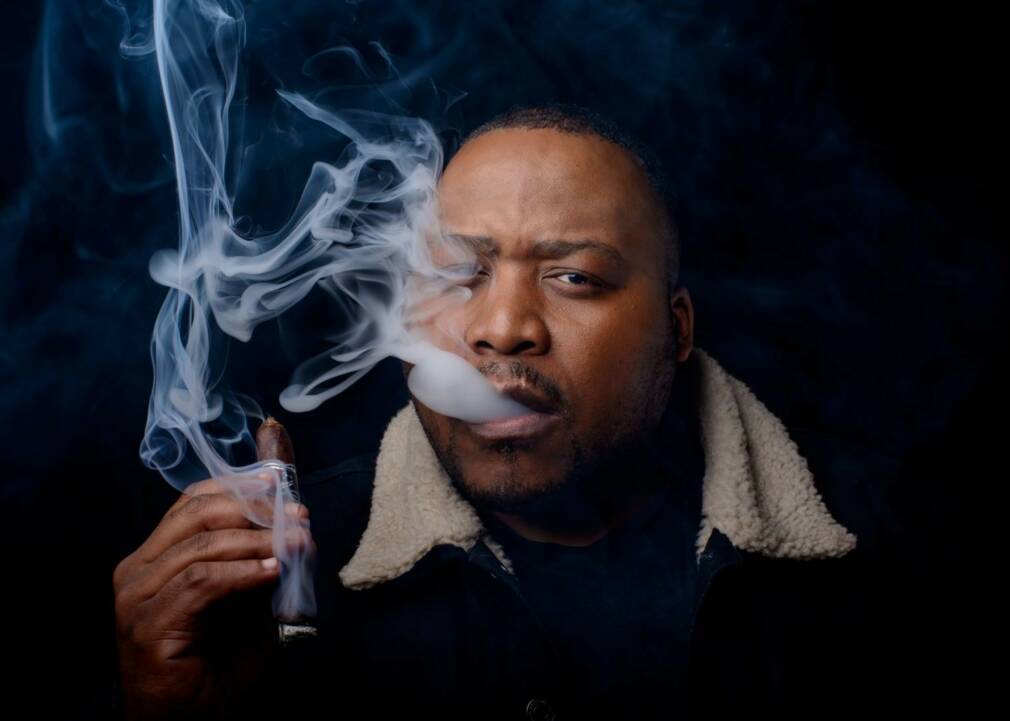A performance of Stogie T at the Bassline Fest brings back a lot of memories to the audience – and probably to him too. On stage, the South African rapper seems at ease, presenting his playful verses on an acoustic jazz band. Every time he shows a smile, one feels that maybe, even more than us, T missed this.
A few years before headlining as Stogie T, the same rapper was known as Tumi Molekane, backed up by a South African-Mozambican trio called The Volume composed of bassist David Bergman, drummer Paul Chibanga and guitarist Tiago Paulo. The band marked the landscape of the 2000s, being one of the first full-on live hip-hop groups in the country. Nothing of it was planned: the band formed spontaneously at the Bassline Club, a live venue at the time located in the trendy Melville suburb of Johannesburg, and put out their first album in 2002, plainly titled At the Bassline. Their raw energy and enthusiasm was quick to seduce a local and international audience, and Tumi and the Volume toured Africa, Europe and North America, meeting together or in solo with respected artists such as Milk Coffee And Sugar, Chinese Man, The Roots or Massive Attack. Their two following albums, Tumi and the Volume (2006) and Pick A Dream (2010) were critically acclaimed.
However, for better or worse, Tumi and the Volume was never fully considered as a rap band. Their sound was often more judged in terms of soundscape, compositions and textures rather than in terms of punchlines, rhymes and flows. For the hip-hop lover and addict Tumi was, this may have been limiting, or frustrating. In 2012, the ensemble split and Tumi became Stogie T, his new name taken from a type of cigar. The rapper inspired himself from both the chic and the gangster aura of the object to renew his artistry, dropping his debut solo and self-titled album in 2016 while inviting some of the year’s hip-hop leaders on it (AKA, Emtee, Nasty C, Nadia Nakai…). He continued his journey with Honey and Pain in 2018 and The Empire of Sheep in 2020, balancing his craft between deep lyricism and more classical hip-hop sounds, before signing to the iconic and legendary rap label Def Jam in 2021.
When watching Stogie T perform on stage with a full live band, revelling in every word and every note, it is difficult to not see the legacy of Tumi and the Volume. Yet, when watching him rap acapella for an entire song, hyping the public to the maximum, it is as difficult not to see the turn he took with Stogie T. Backstage, PAM had a chat with the South African hip-hop OG about his career, his status and his next moves.

Knowing your history, after all these years, how does it feel to be performing with a live band?
Most of this band, the drummer, the guitarist, the bass player, they are jazz musicians. The thing about it is I never used to play with jazz artists. I used to play with rock or reggae type guys as musicians. But the reason I like these guys is that they’re young enough to have hip-hop in their schools as well. So it’s easy to translate. The worst thing is when you’re trying to play hip-hop, you get a live band and they change the genre because it’s live. It still has to be hip-hop. More rich soundwise, and with musicality, but it can’t change the genre and start being full jazz or soul.
How important are instruments in your current way of producing music?
I pretty much started with a band. But when I changed from Tumi to Stogie T, I really wanted to work with a DJ. I didn’t want to do this live thing because I wanted to do more “hip-hop hip-hop”, classic hip-hop. So this is me getting back to the live thing.
I wanted it to be more classic, just to be hard hitting beats, rhymes… A lot of people received Tumi & The Volumes as a novelty. It was like [exaggerating voice] “oh, white guys and black guys from Africa, and playing like world music”. And I was like “fuck that! I’m a rapper bro”! I’m not trying to be something extra. I want you to judge me as a rapper. I got a bit frustrated about that and I decided I wanted to do this. So now, a lot of the music we’re playing is music that fits the live format, but it’s also beats.
You are widely considered as an OG. What’s an OG in a South African context?
In the South African context, a real definition of an OG is DJ Ready D, from Prophets of the City. If you talk about an OG, that’s an OG. Guys who were here in the beginning, in the inception, the guys who did workshops, who were B Boys, who were DJs. Me? I’m just… old (laughs). That’s it bro! I’ve just been here so long. And I think it’s also about values.
I absolutely think about my legacy. I don’t know about workshops though. They asked me to be in a panel, I said no thank you. A lot of these conferences, especially here, it feels like talk talk talk, bullshit bullshit bullshit, and I feel like most of the things happening are always on the ground. All these people, they never really come to the ground and I do appreciate the people who know how to work in that system, but for me, I’m only really interested in preserving and thriving. The best way I know how to preserve and thrive is to be on a stage.
But I do really think about my legacy, I really do. I think especially as I said, I’m old. I’ve got a fourteen year-old son, and for me it’s important for him to know that other kids have dads who are doctors, but his dad is a rapper. And it’s just as valuable and important. I’m not just entertaining, it’s also absolutely a job.

Speaking about preserving, what is your view on the current South African hip-hop?
There are nice things. There’s always gonna be battle rap in South Africa, cyphers, freestyles… That shit is always gonna live. I always know it’s healthy and I do a TV show called “Freestyle Fridays” which started online, and that’s how I know that there’s still a lot of talent around. It’s not mainstream, but these guys exist. But if you look at amapiano, the evolution of the sound, it’s refreshing. I like it because I recognize that energy, I remember that energy when we were the outsiders, the guys who were disrupting. I recognize it for what it is and I support it, I have nothing against it.
What can you tell us about your latest album?
It was called The Empire of Sheep. I felt like I really captured, pre-covid, the sense of the country. I felt like people were losing trust in leadership, the dream. And now that covid happened, let’s forget about it, it’s done, there’s no more dream (laughs). But that’s my job: my job is to be the conscience of people, musically and artistically.
You are now going to pursue that mission with Def Jam, which is particularly iconic in hip-hop…
That’s the next move. It’s hard to use words like “it’s a dream come true”, because I think the work will determine whether it’s a dream come true. But me, I don’t take it for granted. I know what this institution is, I know what Def Jam means. I’m a part of that legacy now, in some strange way. A guy from South Africa, can you imagine? I’m part of the Rick Rubins, the Jays, the Dames, the DMXs, the Redmans…
In this legacy, do you think South African rappers have a specific role to play?
Absolutely! There’s this big preoccupation in South Africa in finding a South African sound and I think amapiano is part of that. But I think the voice of South African hip-hop does best when it doesn’t care about what anyone thinks. That’s when it’s at its best. When it’s trying to break a market… just shut up. That’s why you get really dope MCs and dope artists who are so unique, and the scene in South Africa is so great because it’s so varied. You get stuff that’s more traditional, that’s more dance, that’s more lyrical… everyone can fit in.
The Empire of Sheep (Deluxe Unmasked) by Stogie T, still available.





